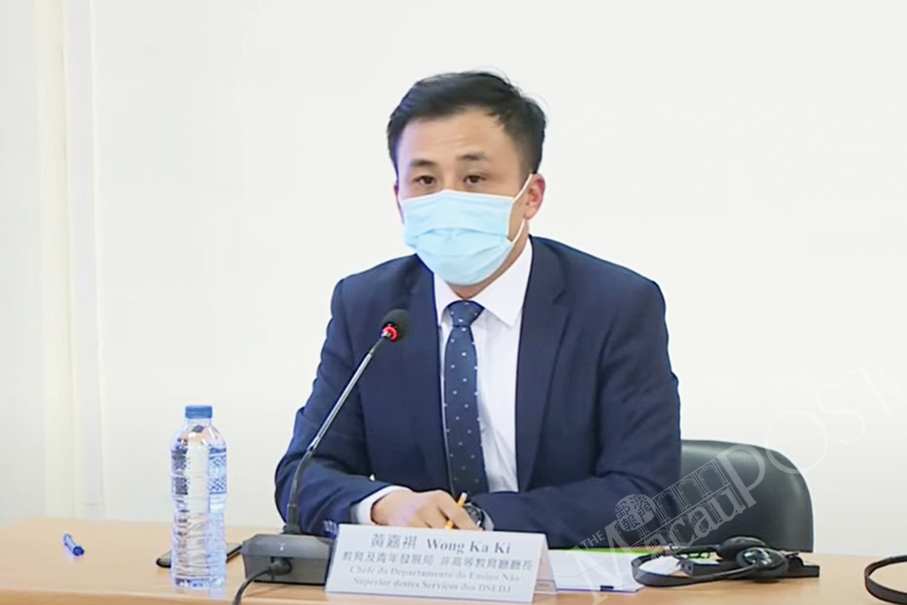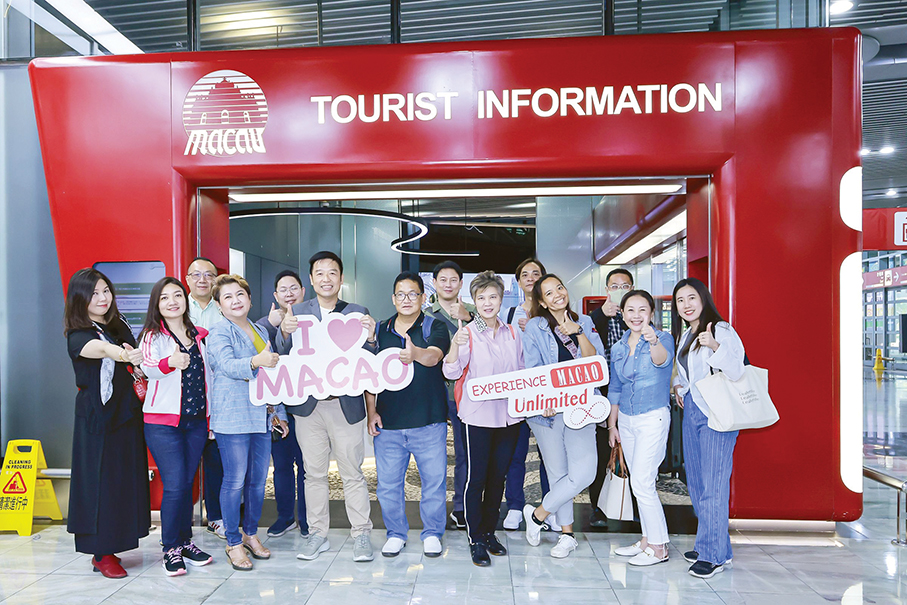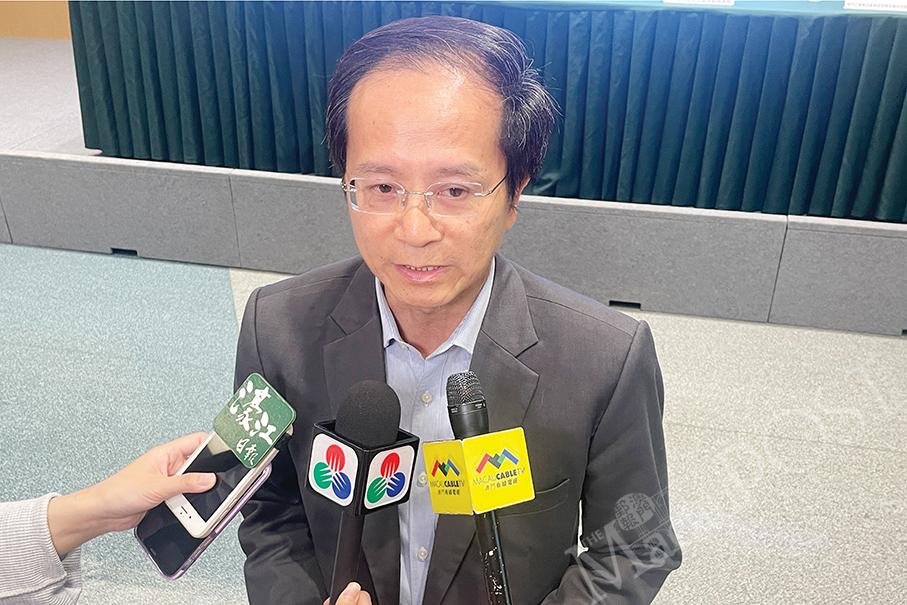Normally, Macau’s non-tertiary education institutions, namely schools and kindergartens, start their new school year in early September.
This year, some of the city’s higher education institutions have started their new academic year this month, such as the public University of Macau (UM) which started its new 2021/22 academic year yesterday.
The government has required higher education institutions starting their new academic year this month to temporarily switch to online teaching. The government has not yet decided whether the city’s higher education institutions can resume in-class teaching next month.
In a statement yesterday, the University of Macau (UM) said that all classes this month will be conducted online, while class arrangements for next month will be determined in due course depending on the latest COVID-19 developments.
For the time being, the government has provisionally determined that schools and kindergartens will start their new academic year early next month as scheduled – i.e. in-class teaching.
During yesterday’s press conference, Wong noted that some of the local students and teachers have been visiting different areas in the mainland or have returned to their respective hometowns there during the ongoing summer holiday. However, more and more areas in the mainland have been classified as medium- or high-risk COVID-19 areas by the health authorities there, Wong noted.
Consequently, Wong reaffirmed, the Education and Youth Development Bureau announced a provisional plan last week for COVID-19 arrangements concerning the upcoming new academic year based on Macau’s current novel coronavirus situation, according to which non-tertiary (recurrent, special, pre-primary, primary and secondary) education students, teachers and other school staff must return to Macau at least 14 days before the start of classes. Cross-border students, teachers and other school staff must return to their normal residence, namely Zhuhai or Zhongshan, at least 14 days before the start of school.
According to the provisional plan, Wong said, students, teachers and other school staff returning from outside Guangdong after August 6 must complete their COVID-19 nucleic acid test (NAT) within five days before the start of school.
Once in-class teaching is resumed, according to the provisional plan, higher education students, teachers and other staff members will be subject to the same COVID-19 arrangements as their counterparts in the non-tertiary education sector, which means that they must return to Macau, Zhuhai or Zhongshan at least 14 days prior to resuming classes or work in Macau.
Similarly, according to Wong, higher education students, teachers and other staff members returning from outside Guangdong after August 6 must complete their nucleic acid test within five days before the start of in-class lessons.
‘Many’ students & teachers have visited mainland
Wong said that his bureau has asked the city’s higher education institutions and schools how many of their students, teachers and other staff members have travelled outside Macau during their summer holiday. The higher education institutions and schools replied that “many” of their students and teachers have been visiting different areas in the mainland or have returned to their respective hometowns there, Wong said, adding that some of them have been returning to Macau from different areas in the mainland.
In addition, Wong said that once in-class teaching is resumed in the higher education sector, mainland students enrolled in Macau who have returned to their respective hometowns will return to Macau from various areas in the mainland, because of which, Wong warned, the situation would pose a higher COVID-19 risk to Macau.
Wong said that if Macau’s COVID-19 situation remains stable over the next few weeks, schools and kindergartens will start their new academic year early next month as scheduled, and higher education institutions will resume in-class teaching.
However, Wong said that if the Health Bureau (SSM) determines shortly before next month’s scheduled start of the new school year that Macau faces a higher COVID-19 risk or is affected by certain factors that might render the city’s COVID-19 situation unstable, his bureau would possibly postpone the start of classes in schools and kindergartens and the start of in-class lessons in higher education institutions.
Macau has not recorded a new local COVID-19 case for 15 consecutive days after a Delta variant four-member family cluster was confirmed on August 3.
Wong underlined that the upcoming start of school will entail the “biggest” people movement in the city during its ongoing process to return to normality following the COVID-19 family cluster, because of which, Wong pointed out, his bureau has been constantly studying Macau’s COVID-19 situation with the Health Bureau, with the aim of possibly coming up with “higher” standards on COVID-19 prevention required for the city’s education institutions.
Wong also noted that about 3,000 students enrolled in local schools live in Zhuhai or Zhongshan in the neighbouring province of Guangdong.
Safe after 28 days
Meanwhile, Health Bureau (SSM) Control of Communicable Diseases and Surveillance of Diseases Department Coordinator Leong Iek Hou warned during yesterday’s press conference that only after Macau does not report a new local COVID-19 case for at least 28 consecutive days could it be proven that the city’s novel coronavirus epidemic situation has eased.
Leong noted that normally a place can only be considered safe from COVID-19 after at least two incubation periods of the novel coronavirus have passed – i.e. at least 28 days after the latest local COVID-19 cases were confirmed. Normally the novel coronavirus disease has an incubation period of up to 14 days, but in rare cases the incubation period could be longer than 14 days.
Consequently, Leong said that it can only be proven that Macau’s COVID-19 situation has eased if no positive COVID-19 cases will be detected over the next 14 days, urging residents to pay close attention to their state of health over the next fortnight.

Wong Ka Ki, who heads the Education and Youth Development Bureau’s (DSEDJ) Non-Tertiary Education Department, addresses yesterday’s press conference about the city’s novel coronavirus (COVID-19) situation. Photo: GCS








